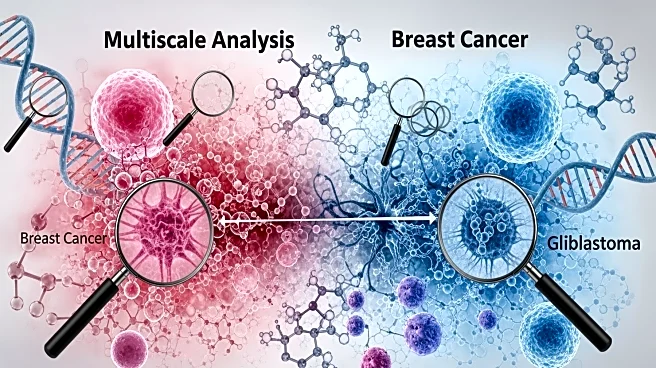What's Happening?
A study has conducted a multiscale pancancer analysis to uncover intrinsic imaging and molecular characteristics prominent in breast cancer and glioblastoma. Researchers developed MRI-based radiomic and deep
learning models to identify cancer-type common (CTC) and cancer type-specific (CTS) features associated with prognosis. The study found that CTC features demonstrated superior survival prediction compared to CTS features, with significant implications for precision oncology. The analysis also revealed biological insights into pathways like focal adhesion, suggesting a role in breast cancer brain metastasis.
Why It's Important?
The findings highlight the potential of advanced imaging and molecular analysis in improving cancer prognosis and treatment strategies. By identifying common traits across different cancer types, the study paves the way for more personalized and effective therapies. The research underscores the importance of integrating imaging and molecular data in cancer diagnosis and management, potentially influencing clinical practices and research priorities.
Beyond the Headlines
The study raises questions about the ethical and practical implications of using advanced technologies in cancer treatment. It highlights the need for collaboration between researchers, clinicians, and policymakers to ensure equitable access to innovative diagnostic tools and therapies.








